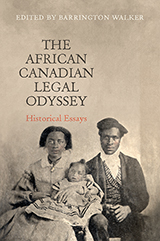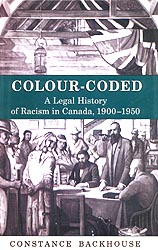Kudos to historian Graham Nickerson of UNB, whose archival find was recently the subject of a report by Laura Brown of CTV (@LauraBrownctv)
Here's the report:
FREDERICTON -- A black historian - originally from Nova Scotia - is uncovering some of New Brunswick's slave history, including the story of a slave named Nancy.
Graham Nickerson studies black loyalist history at the University of New Brunswick and is working on bringing Nancy's story to light.
Few details are known about Nancy. Nickerson has discovered she was born in Maryland and brought to New Brunswick in 1785. She spent much of her life as a slave on a large property where the neighbourhood of Nashwaaksis in Fredericton sits today.
There doesn't appear to be any photos or documents detailing Nancy's life or death, but there are archives of a trial between her and her slave owner in Fredericton 220 years ago this month.
"She brings a case that's essentially strong enough to challenge the entire institution," said Nickerson. "She's at a level that’s really, really close to the bottom and she's challenging an institution that's at the top. And so, I think there's a lesson to be learned that if you're on the side of right, you should challenge authority."
According to the archives, Nancy's case was in front of four judges, including three slave owners. One of those included Chief Justice George Ludlow, whose name was used to name the University of New Brunswick's law building.
Students at the University have asked the school to remove the name on Ludlow Hall. The president of U.N.B. formed a group in December to look at how the building was named, Ludlow's history, and recommend the next steps.
That group is supposed to provide a report by May 1.
"Either, we change the name of the Ludlow Hall to something that's more inclusive, or we also build a memorial to Nancy," said Nickerson. "As a black man, my family tree is full of black women who were traumatized by owners, and the white men in their life, and we don't have commemorations to that."
Nancy lost her case and has since disappeared from historical records. Nickerson says he wants to ensure her legacy lives on by sharing her story.
"To do justice to the women who raised us," said Nickerson.
A Black Heritage Exhibit – which will include Nancy's story – is scheduled to open this summer at Fredericton Region Museum.
h/t Nicole O'Byrne.


